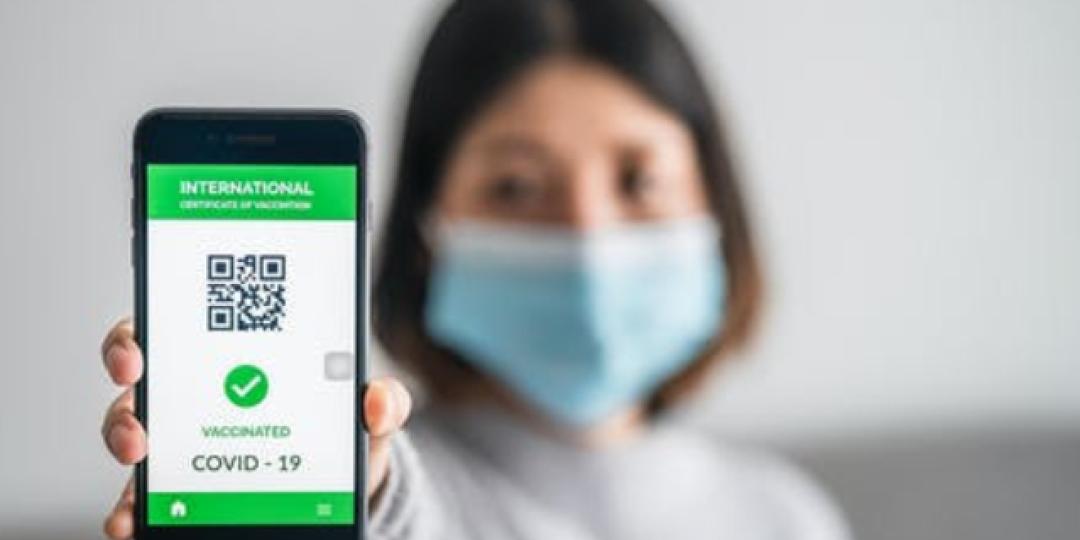The South African travel industry has welcomed the news that South Africa’s Minister of Health, Dr Joe Phaahla, has said that within a week from now, all vaccinated South Africans will be eligible for a digital vaccination certificate, uploadable to a cellphone app, and currently under development by the government.
But, outbound industry association, Asata has sounded a warning – for these digitised certificates to enable the efficient functioning of airlines, the outbound travel industry and the inbound tourism industry, this certification system needs to be aligned and harmonised with global standards, such as those set out by the International Civil Aviation Organisation (Icao).
“Recognising that a digital vaccination certificate will be an important criterion for any outbound travel, Asata has been lobbying for the establishment of one in South Africa… We are liaising with the Department of Health to ascertain the extent to which it delivers on the requirements that are set by our primary markets,” said Otto de Vries, Asata CEO.
“It is imperative that this certification be aligned with international standards, and that the government policy of accepting digital vaccination certificates of inbound travellers similarly be aligned with international best practice, so that we can facilitate smooth and seamless inbound and outbound travel to and from South Africa,” said De Vries.
Further to the easing of travel requirements, De Vries highlighted the need for government to change its policy to differentiate between vaccinated and non-vaccinated travellers. “Travellers who can provide proof of vaccination should be allowed access to and from the country without a PCR test. Conversely, those who are partially vaccinated or unvaccinated should still be required to show a PCR test with a validity of 72 hours on departure and arrival.”
“This much-awaited announcement is fantastic news for the South African travel and tourism industry as it will help facilitate travel for all vaccinated South Africans and help cut through the red tape and admin when travelling,” said Corporate Traveller GM, Oz Desai.
“COVID passports are likely to be non-negotiable in a post-COVID world. Exactly how the world goes about it is still up in the air,” said Desai.
FEDHASA ‘pleased’
The hospitality industry was also pleased with the prospect of the digi-certificates and the simplification they should bring to travel.
Rosemary Anderson, FEDHASA National Chairperson, said: “Beyond the obvious benefits for South African citizens wanting to travel to destinations which require travellers to hold digital vaccination certificates, this announcement is also good news for our inbound industry as it will go a long way to restoring confidence in international visitors wanting to visit South Africa.
“International travellers will feel more secure in visiting South Africa if standardised processes and protocols are followed. Traveller confidence always improves when there is consistency,” Anderson added. Many of South Africa’s key source markets have already implemented, or are in the process of implementing, digital vaccine certificates.
The Health Minister described the South African vaccination card as “an access card”, and emphasised that it was not compulsory for all vaccinated people to carry one. “We want to look at it as an incentive through which certain activities in increasing numbers will be available for those who are vaccinated,” he told News24. Dr Phaahla has previously gone on record saying that mandatory vaccination and a policy prohibiting the unvaccinated from certain activities were under discussion at various government levels.
For air travel to be able to gear up alongside demand, systems will need to be revised, speeded up and improved. The digitisation of certificates should go a long way towards the more efficient functioning of airports and other border posts.
De Vries said: “We need globally recognised, standardised and inter-operable digital certificates both for COVID-19 testing and vaccine certificates. Governments around the world need to stop acting in isolation and agree on a standardised approach to international travel criteria and requirements, including digital health certificates. Only then will these certificates have the potential to significantly reduce the red tape and administration that is currently necessary when travelling overseas. It would be the start of a safe, convenient, consistent and efficient restart of travel.”
Pre-COVID, passengers on average spent 1,5 hours in travel processes for every journey (check-in, security, border control, customs and baggage claim). Current data indicates that airport processing times have ballooned to three hours during peak travel times, and that’s with travel volumes at only 30% of pre-COVID-19 levels.
Iata has warned of potential airport chaos unless governments move quickly to adopt digital processes to manage passenger travel health credentials (COVID-19 testing and vaccine certificates) and other COVID-19 measures.






















